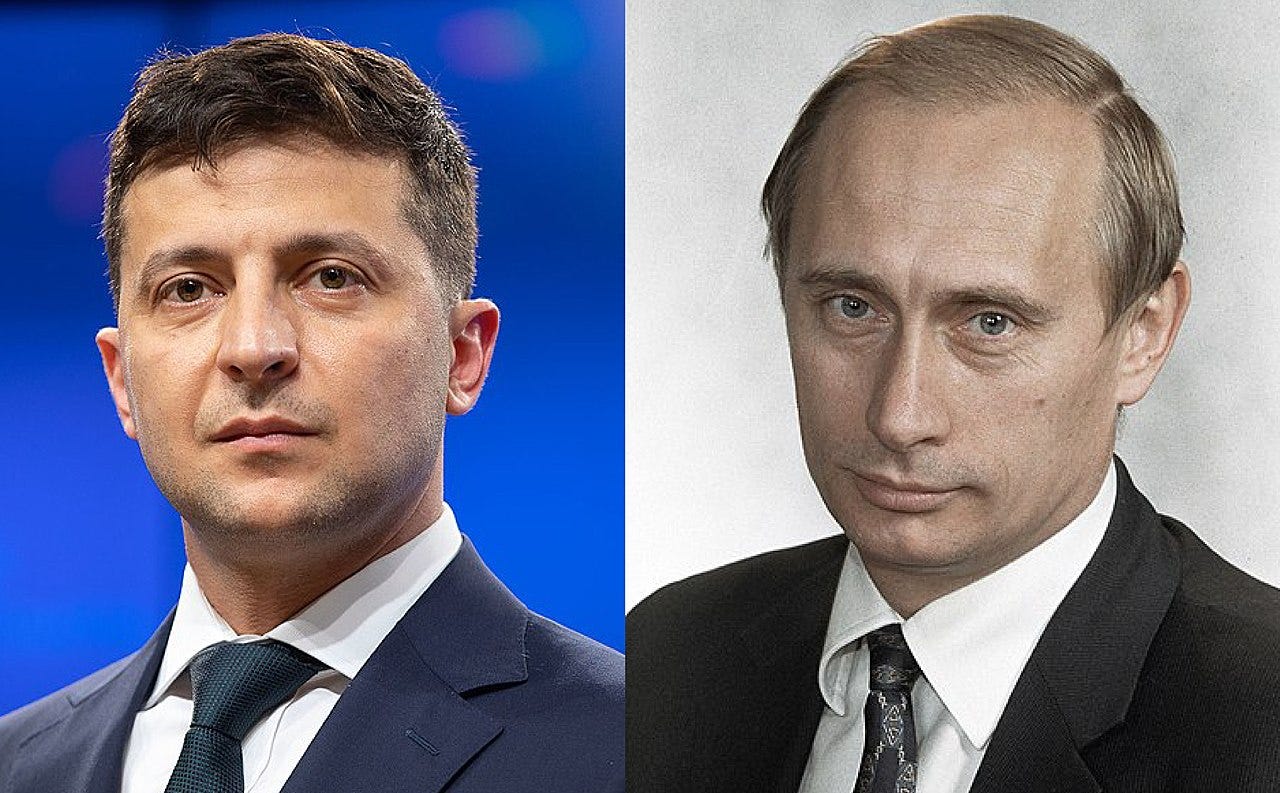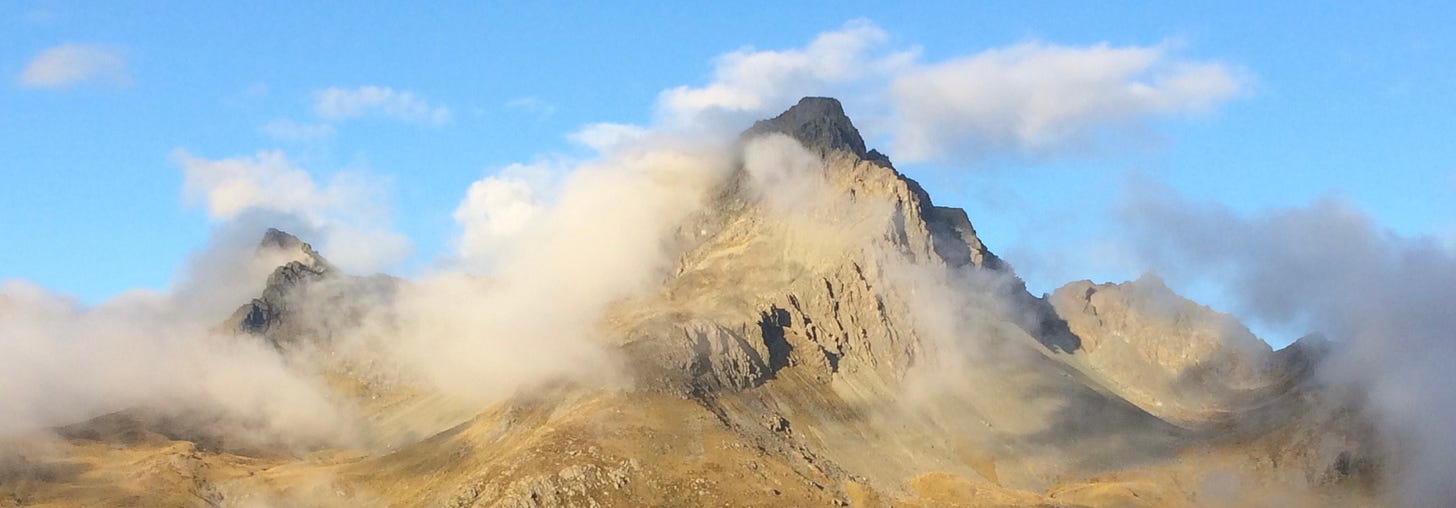2B RED: on the "Special Military Operation" in Ukraine
Vladimir vs. Volodymyr - competing to be a "great and peaceful ruler"
The “Special Military Operation” in Ukraine (widely known by the acronym W.A.R.) drags on. The loss of life, the immense destruction of infrastructure, the disrupted lives and anguish of millions on both sides, the turmoil in commodity markets ... in short, all the ugliness and horror and chaos of a brutal conflict, displayed nightly on our screens. One of the consequences is that 2B RED feels the need to at least make a start and build on his scanty knowledge of the region — its history, peoples, economy and culture.
In the words of Abraham Lincoln:
If we could first know where we are, and whither we are tending, we could then better judge what to do, and how to do it.1
So I set out to add at least a modicum of insight about where we are. The chances of an incremental gain in my understanding were extremely high, given the appallingly low base from which I was starting.
Where to begin? I was conscious that almost all the news and the articles I had read were arguably presenting a Western-centric view of the conflict. Maybe there were other perspectives. I concluded that an obvious place to start was the views of the Russian President, Vladimir Vladimirovich Putin. On July 12, 2021 Putin’s 5000-word essay On the Historical Unity of Russians and Ukrainians was published on the Kremlin website.2
However, after several failed attempts to connect with the Kremlin, I decided not to persist. (Has Google blocked access to some Russian sites? Or have the Russian authorities blocked access from Google?) I feared any more attempts to connect might well lead to a most courteous call from NZSIS, the New Zealand Security and Intelligence Service, asking if I would be so kind as to drop by for a chat with Ms Kitteridge.
But all was not lost, as some more diligent searching revealed a copy of the essay in the Presidential Library of Boris Yeltsin:
The essay’s entire thrust is summed up in the opening lines: "Russians and Ukrainians were one people — a single whole." All the arguments then put forward are aimed at supporting this thesis.
Two "great and peaceful” rulers, at war
The very name Vladimir (Volodymyr in Ukrainian), means variously " a great ruler", "a peaceful ruler", and "ruler of the world". Whether Mr Putin lives up to the notion of a "great and peaceful ruler" might justifiably raise an eyebrow or two today. But the fact is that both leaders share the same name. Its origin is Great Prince Vladimir of Kiev (10th century), who is revered as the patron saint of both countries. In fact, there is a statue of the Great Prince on the skyline of Kiev, and another outside the Kremlin in Moscow.

This is but one dimension of a complex history that in Putin's view binds the two countries. Both are descended from the Ancient Rus, a large Slavic kingdom in which the throne of Kiev was a central axis. This was followed by 1000 years of conflicts, land grabs and changing borders and rulers. One anecdote that illustrates this intertwined history was that of a woman recounting that her grandmother had been born in Hungary, married in Poland and died in the Ukraine — and she had never left her village.
The case of Crimea further illustrates the interlinked nature of the Russian-Ukrainian relationship. In 1954, the Russian government led by the Nikita Khrushchev, First Secretary of the Communist Party, ceded Crimea to Ukraine. The cession of Crimea, according to the official announcement, was a “noble act on the part of the Russian people” to commemorate the 300th anniversary of the “reunification of Ukraine with Russia” (a reference to the Treaty of Pereyaslav signed in 1654 by representatives of the Ukrainian Cossack Hetmanate and Tsar Aleksei I of Muscovy) and to “evince the boundless trust and love the Russian people feel toward the Ukrainian people".3
The Russians do however seem to be coming up a bit short of "boundless love and trust" for Ukrainians. Given the subsequent annexation of Crimea in 2014, and the annexation of the eastern provinces in the Donbas in 2022, one could reasonably make a case that Russian policy is suffering from that which economists refer to as time inconsistency.
Fact checking
How much of Putin's essay is based on inaccurate interpretations of history, myths and wishful thinking is beyond 2BRED's capacity to judge. But others have raised questions. In particular, Matthew Lenoe, an associate professor of history at the University of Rochester, and an expert on Russian and Soviet history, has written Fact-checking Putin’s claims that Ukraine and Russia are ‘one people’.
Needless to say he finds some truths, some half truths and some outright deviations from historical facts. But I must leave the reader to judge. An easy accessible read to get a grasp of Ukrainian history is Ukraine Book: A Brief History of Ukraine: From the Stone Age to the Middle Ages to Today by University Press.
A striking number of parallels with the current conflict are found in the history of the German invasion of the USSR. This is fully documented in Stalingrad by Antony Beevor (Penguin, 2007). The invasion was urban warfare with the staggering loss of 1.2 million lives. Hitler constantly intervened in the setting of military strategy, and fired generals at will. He also declared victory at times. And while the sheer might of the Russian military backed by the vast resources of the country eventually prevailed, it was not without huge losses and at times brutal treatment of their own troops.
Widespread corruption
Finally, two books give first hand insights into both the widespread corruption in Russia today and the character and role of Putin. The author, Bill Browder, an American businessman, lived in Russia and operated in the finance sector. He was the founder and CEO of Hermitage Capital Management, the largest single foreign investor in Russia up until 2005.
He recounts his experiences in Red Notice: A true story of corruption, murder and one man's fight for justice (Transworld Digital, 2015). His tax lawyer, Sergei Magnitsky was murdered in a Russian prison, being held on trumped up charges of fraud. He had been investigating a $230 million fraud by Russian tax officials. Browder took up the case, and lobbied US politicians. The outcome was that in 2016, Congress enacted the Global Magnitsky Human Rights Accountability Act, which allows the US government to sanction foreign government officials implicated in human rights abuses anywhere in the world.
Bill Browder followed up with a sequel: Freezing Order: A true story of Russian money laundering, murder and surviving Vladimir Putin's wrath (Simon and Schuster, 2022). He recounts how Putin personally directed operations against him, and sought to have Interpol issue an order naming Browder. Not only are these well documented true accounts of the corruption and brutality of the Russian regime, but they are arguably the most gripping thrillers one could ever find. Writing in the New York Times Review of Books, Stephen Fry wrote:
More explosive, compulsive and gasp-inducingly, spine-tinglingly, mouth-dryingly, heart-poundingly thrilling than any fiction I have read for years, but it is all true.
By Grant Scobie
Speech to the Republican State Convention, Springfield, Illinois, June 16, 1858.
It is (sometimes) available on the Kremlin website.





